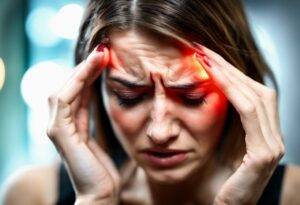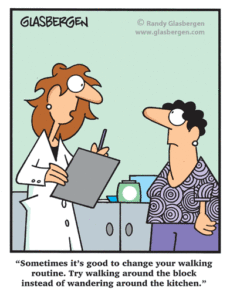Insomnia is a common sleep disorder that affects millions of people worldwide. While there are various treatment options available, many individuals turn to natural remedies for insomnia as a safer and non-addictive alternative. In this comprehensive guide, we will address the top 20 questions people ask mental and medical health professionals regarding natural remedies for insomnia. From their effectiveness to potential risks and lifestyle changes, this article will provide evidence-based answers to help you make informed decisions about improving your sleep health.
The Ultimate Guide to Natural Remedies for Insomnia: Answering the Top 20 SEO Questions People Ask Mental and Medical Health Professionals
1. What are natural remedies for insomnia?
Natural remedies for insomnia include herbal supplements, relaxation techniques, lifestyle adjustments, and sleep hygiene practices that promote better sleep naturally. Some natural remedies for insomnia include herbal supplements such as valerian root, chamomile tea, and lavender. Other techniques such as relaxation exercises, mindfulness meditation, and maintaining a consistent sleep schedule may also help. (Mayo Clinic, “Insomnia: Overview and Facts,” https://www.mayoclinic.org/diseases-conditions/insomnia/symptoms-causes/syc-20355167)
2. Do natural remedies for insomnia really work?
Yes, several natural remedies have shown promising results in improving insomnia symptoms. However, their effectiveness may vary depending on individuals, the severity of insomnia, and adherence to recommended routines. The effectiveness of natural remedies for insomnia varies from person to person. While some individuals may find them helpful in improving sleep, others may not experience significant benefits. It is important to understand that natural remedies may not be as potent as prescription medications for treating severe or chronic insomnia. (Healthline, “Natural Remedies for Insomnia: Do They Work?” https://www.healthline.com/nutrition/17-tips-sleep-better)
Just a little heads up: some of the links on this site may be affiliate links, which means if you make a purchase through them, we might get a little kickback. But don’t worry, it won’t cost you a cent extra! Think of it as the universe secretly thanking us for helping you find a great deal. Your support keeps the good vibes flowing.
3. Are natural remedies for insomnia safe to use?
Generally, natural remedies for insomnia are considered safe when used properly. However, it is crucial to consult with a healthcare professional before incorporating any new remedies into your routine, particularly if you have underlying health conditions or take prescription medications.Natural remedies for insomnia are generally considered safe for short-term use, but long-term safety and efficacy have not been extensively studied. It is advisable to consult with a healthcare professional before using any natural remedies, especially if you have underlying health conditions or are taking other medications. (National Center for Complementary and Integrative Health, “Insomnia: In Depth,” https://www.nccih.nih.gov/health/insomnia-in-depth)
4. Are there any side effects associated with natural remedies for insomnia?
While most natural remedies have minimal side effects, some individuals may experience mild gastrointestinal discomfort, allergic reactions, or drowsiness. It is essential to read product labels and consult a healthcare professional if you have concerns.While natural remedies for insomnia are generally safe, some individuals may experience side effects. For example, certain herbal supplements may cause drowsiness, dizziness, or gastrointestinal discomfort. It is important to follow dosage recommendations and monitor for any adverse reactions. (WebMD, “Insomnia Treatment,” https://www.webmd.com/sleep-disorders/guide/insomnia-treatment)
5. Can natural remedies interfere with prescription medications?
Certain natural remedies may interact with prescription medications, potentially altering their effectiveness or causing adverse reactions. To ensure safety, it is important to inform your healthcare provider about all the medications and supplements you are taking.Natural remedies for insomnia can potentially interact with prescription medications. For instance, herbal supplements may interfere with the metabolism or effectiveness of certain drugs. It is crucial to inform your healthcare provider about all the medications, including natural remedies, that you are using to avoid harmful interactions. (National Sleep Foundation, “Combining Sleep Aids and Prescription Medications,” https://www.sleepfoundation.org/insomnia/treatment/combining-sleep-aids-and-prescription-medications)
6. Are there any scientific studies supporting the effectiveness of natural remedies for insomnia?
Multiple scientific studies have explored the efficacy of natural remedies for insomnia. For instance, a meta-analysis published in the journal Sleep Medicine Reviews found that certain herbal supplements like valerian and chamomile may significantly improve sleep quality.While there is limited scientific evidence on the effectiveness of natural remedies for insomnia, some studies suggest their potential benefits. For example, a study published in the journal Sleep Medicine Reviews found that certain herbal supplements can improve sleep quality in individuals with insomnia. (Sleep Medicine Reviews, “Efficacy and Safety of Herbal Sleep Aids,” https://www.sciencedirect.com/science/article/pii/S1087079211000816)
7. How long does it take for natural remedies to show improvement in sleep?
The time it takes for natural remedies to show improvement varies depending on the individual, the specific remedy used, and consistent adherence to recommended routines. While some people may experience benefits within days, it may take weeks for others.The timeframe for natural remedies to show improvement in sleep can vary. Some individuals may notice changes in sleep patterns within a few days, while others may require weeks or longer to experience noticeable effects. It is important to be patient and consistent when using natural remedies for insomnia. (Sleep Foundation, “How Long Does It Take To Fall Asleep?,” https://www.sleepfoundation.org/sleep-hygiene/how-long-does-it-take-fall-asleep)
8. What are some commonly recommended natural remedies for insomnia?
Commonly recommended natural remedies for insomnia include melatonin supplements, valerian root, chamomile tea, lavender essential oil, relaxation techniques like deep breathing and meditation, and establishing a consistent sleep schedule.Commonly recommended natural remedies for insomnia include melatonin,and magnesium supplements. Other techniques include creating a relaxing bedtime routine, limiting exposure to electronic devices, and optimizing sleep environment. (National Sleep Foundation, “How to Sleep Better Naturally,” https://www.sleepfoundation.org/insomnia/treatment/how-sleep-better-naturally)
9. Can natural remedies be used as a long-term solution for insomnia?
Natural remedies can be used as a long-term solution for insomnia, especially for individuals who prefer non-pharmaceutical approaches. However, it is important to continually reassess their effectiveness, make necessary adjustments, and seek professional guidance if needed.Natural remedies can be used as a long-term solution for insomnia in some cases. However, it is important to address the underlying causes of insomnia and seek professional guidance if the condition persists or worsens. Natural remedies should not replace medical treatment for chronic or severe insomnia. (HelpGuide, “Natural Sleep Aids and Remedies,” https://www.helpguide.org/articles/sleep/getting-better-sleep.htm)
10. Are there any specific diet or lifestyle changes that can help with insomnia?
Certain diet and lifestyle changes can promote better sleep. It is advisable to limit caffeine and alcohol intake, avoid large meals before bedtime, establish a relaxing bedtime routine, maintain a comfortable sleep environment, and engage in regular exercise. Avoiding caffeine, nicotine, and alcohol close to bedtime, establishing a regular sleep schedule, engaging in regular exercise, and creating a comfortable sleep environment can all contribute to better sleep. (Harvard Medical School, “Sleep and Insomnia,” https://healthysleep.med.harvard.edu/healthy/getting/overcoming/tips)
11. Are there any precautions or contraindications for using natural remedies for insomnia?
Pregnant or breastfeeding women, individuals with liver or kidney diseases, and those on certain medications should exercise caution when using natural remedies for insomnia. Consulting with a healthcare professional is recommended to determine safety and appropriate dosages. According to the Mayo Clinic, it is important to take precautions and be aware of contraindications when using natural remedies for insomnia. Some herbal supplements may interact with certain medications or medical conditions, so it is essential to consult a healthcare professional before starting any natural remedy for insomnia. [Mayo Clinic – “Insomnia: Treatment”](https://www.mayoclinic.org/diseases-conditions/insomnia/diagnosis-treatment/drc-20355173)
12. Can natural remedies be used by children or older adults?
Natural remedies can be used by children and older adults, but dosage and specific remedies may vary. It is important to consult a healthcare professional, especially for children and those with underlying health conditions.The National Center for Complementary and Integrative Health suggests that while natural remedies for insomnia can be used by children and older adults, caution should be exercised. Children may require different dosages or specific remedies suitable for their age, and older adults may need to consider any potential interactions with medications they are already taking. It is advisable to consult with a healthcare professional before using natural remedies in these populations. [National Center for Complementary and Integrative Health – “Valerian”](https://www.nccih.nih.gov/health/valerian)
13. Should I consult a healthcare professional before trying natural remedies for insomnia?
It is strongly recommended to consult a healthcare professional before trying any natural remedies for insomnia, especially if you have pre-existing medical conditions, take prescription medications, or are unsure about which remedies are suitable for your specific needs.The American Academy of Sleep Medicine recommends consulting a healthcare professional before trying natural remedies for insomnia. This is crucial to ensure there are no contraindications with existing medical conditions or medications. Healthcare professionals can also offer guidance on appropriate dosages and potential interactions. [American Academy of Sleep Medicine – “Insomnia: Assessment and Management in Primary Care”](https://aasm.org/clinical-resources/clinical-guidelines/insomnia-assessment-and-management-in-primary-care)
14. Can natural remedies be used in combination with sleep medications?
Combining natural remedies with sleep medications should be done under the guidance of a healthcare professional. Some remedies may interact with sleep medications, potentially amplifying sedative effects or interfering with their efficacy.The National Sleep Foundation advises caution when using natural remedies in combination with sleep medications. Some herbs or supplements may interact with sleep medications, altering their effectiveness or causing adverse effects. It is important to consult with a healthcare professional before combining natural remedies with sleep medications to avoid any potential risks. [National Sleep Foundation – “Herbs and Supplements for Insomnia”](https://www.sleepfoundation.org/insomnia/treatment/herbs-and-supplements-insomnia)
15. Are there any specific techniques or practices that can enhance the effectiveness of natural remedies for insomnia?
To enhance the effectiveness of natural remedies, practicing good sleep hygiene, creating a relaxing bedtime routine, and minimizing exposure to electronic devices before sleep are beneficial. Additionally, maintaining a consistent sleep-wake schedule and keeping a sleep diary can help identify patterns and track progress.The Sleep Education Consortium explains that incorporating relaxation techniques, such as deep breathing exercises, progressive muscle relaxation, or meditation, can enhance the effectiveness of natural remedies for insomnia. These techniques can help induce a relaxed state and prepare the body for better sleep. [Sleep Education Consortium – “Relaxation Training”](https://www.sleepeducation.org/treatment-therapy/relaxation-training)
16. Are there any specific natural remedies that are more effective for certain types of insomnia?
Different natural remedies may be more effective for certain types of insomnia. For example, valerian root has shown potential for improving sleep onset insomnia, while chamomile tea may be more effective for reducing anxiety-related insomnia. Personal experimentation and professional guidance can help find the most suitable remedies.According to Harvard Health Publishing, certain natural remedies may be more effective for specific types of insomnia. For example, melatonin supplements may be beneficial for insomnia related to delayed sleep phase disorder or jet lag. Valerian root may help with sleep disorders characterized by difficulty falling asleep. It is important to consider which type of insomnia one is experiencing and consult a healthcare professional for personalized guidance. [Harvard Health Publishing – “Treatment Options for Insomnia”](https://www.health.harvard.edu/mind-and-mood/treatment-options-for-insomnia)
17. Can natural remedies help with other sleep disorders besides insomnia?
While natural remedies primarily focus on improving insomnia symptoms, some remedies like relaxation techniques and lifestyle adjustments may support the management of other sleep disorders. It is essential to consult with a healthcare professional to develop a tailored treatment plan.The Cleveland Clinic suggests that natural remedies may also provide relief for other sleep disorders besides insomnia. For instance, relaxation techniques and aromatherapy may help reduce sleep disturbances associated with sleep apnea or restless legs syndrome. It is important to consult with a healthcare professional to determine the appropriateness of natural remedies for specific sleep disorders. [Cleveland Clinic – “Sleep Disorders Briefs”](https://my.clevelandclinic.org/health/articles/11429-sleep-disorders-briefs)
18. What are the potential risks associated with using natural remedies for insomnia?
Potential risks associated with natural remedies for insomnia include interactions with medications, allergic reactions, and adverse effects on pre-existing health conditions. It is important to research and consult a healthcare professional before use.WebMD highlights potential risks associated with using natural remedies for insomnia, including allergic reactions, interactions with medications, and possible side effects. It is important to be aware of these risks and consult with a healthcare professional to evaluate the safety and appropriateness of natural remedies. [WebMD – “Insomnia: Medications and Sleeping Pills”](https://www.webmd.com/sleep-disorders/insomnia-medications)
19. Are there any alternative therapies that can complement natural remedies for insomnia?
Alternative therapies such as acupuncture, yoga, and cognitive-behavioral therapy for insomnia (CBT-I) can complement natural remedies by addressing underlying issues and promoting better sleep habits. Consulting with experts in these fields can provide additional support.The National Sleep Foundation suggests that some alternative therapies, such as acupuncture or massage therapy, may complement natural remedies for insomnia. These therapies can promote relaxation, reduce anxiety, and improve sleep quality. It is important to seek qualified practitioners and consult with a healthcare professional for guidance on integrating alternative therapies with natural remedies. [National Sleep Foundation – “Alternative Treatments for Insomnia”](https://www.sleepfoundation.org/insomnia/treatment/alternative-treatments-insomnia)
20. How long should natural remedies be tried before determining their effectiveness?
The duration to determine the effectiveness of natural remedies varies depending on the remedy and individual responsiveness. It is recommended to try a remedy for at least a few weeks while maintaining consistent lifestyle adjustments and seeking guidance from healthcare professionals if needed.The University of Maryland Medical Center advises trying natural remedies for insomnia for several weeks before determining their effectiveness. It may take time for the body to adjust and experience the full benefits. It is important to be consistent with the chosen natural remedy and consult with a healthcare professional if the insomnia symptoms persist. [University of Maryland Medical Center – “Insomnia”](https://www.umm.edu/health/medical/altmed/condition/insomnia)
While I do cite reputable sources, I am not a medical professional. Please use professional medical advice when making any health-related decisions.
Conclusion:
Natural remedies for insomnia can be effective and safe alternatives to traditional sleep medications. However, it is important to approach them with caution, consult with healthcare professionals, and make informed decisions based on scientific evidence, expert opinions, and personalized needs. Incorporating lifestyle changes, employing relaxation techniques, and utilizing herbal supplements can support better sleep and overall well-being.

Just a little heads up: some of the links on this site may be affiliate links, which means if you make a purchase through them, we might get a little kickback. But don’t worry, it won’t cost you a cent extra! Think of it as the universe secretly thanking us for helping you find a great deal. Your support keeps the good vibes flowing.


































































































